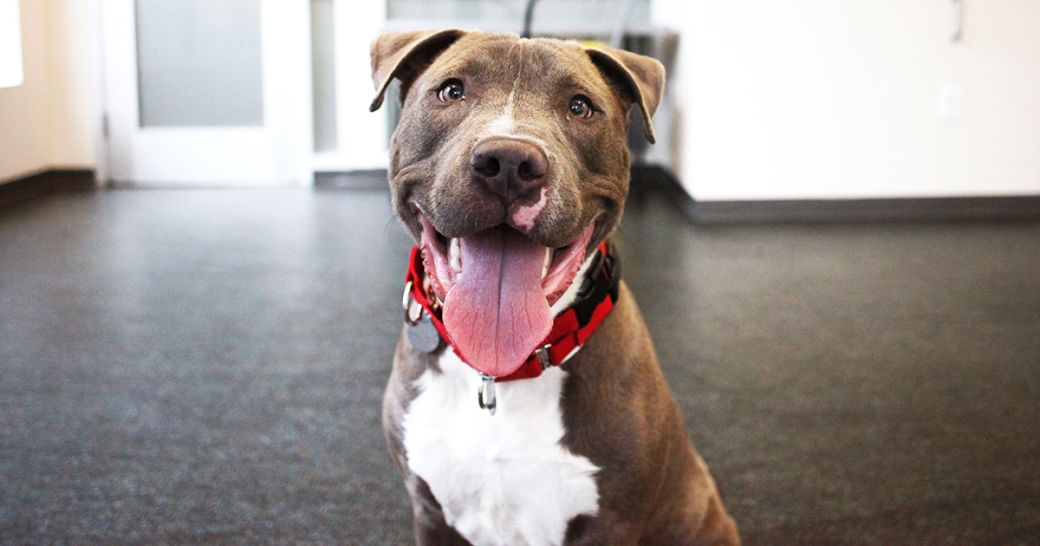
Caring for a pet is both a rewarding and meaningful experience and can help enrich your child’s love for animals and caring for others. As with any pet, when adopting a pet for your children, it is helpful to consider what type of animal suits your family’s lifestyle and the care requirements for the pet. Below are a few tips to guide your journey in selecting the purrr-fect animal friend for your children.
Age: While adopting puppies or kittens can be too adorable to pass up, it can also be a lot of work – and parenting requires even more work and can even be overwhelming at times. If your family is looking for an animal that offers mellow and calm energy to the home, consider adopting an older animal or an animal whose maturity fits the energy level your family can manage.
Temperament: Assess your child’s (or children’s) personality, maturity level, and the characteristics of any particular pet you are considering. Is your child ready to handle a fragile creature? Do they not respond well to frequent high energy? What does your child want when it comes to interactions with their pet? While an adjustment period is expected, ensuring compatibility can help create a happy and healthy long-term relationship between your child and pet.
Personality: Adopting a pet whose personality and characteristics complement your child’s personality and needs will make for a great match in the home. Look for local “meet and greet” opportunities to meet any new animal friends before adopting to ensure the animal is a great match for your child and household. Many animal rescues and shelters will even include a short bio of each animal available for adoption, along with the traits and habits of the animal, to guide adopters in picking a pet that has the personality best suited for them.
Cost: Pets can be expensive and require a large spectrum of care. When considering the best pet option for your family, choose a pet that fits your budget without sacrificing your child’s financial needs. Talk with your veterinarian about the care requirements for each pet you are considering to help you assess what decision is best for your family.
Life span of the pet: Children are no different from us when building a quick attachment toward a pet. Consider the life span of any potential pets, your child’s emotional attachment toward animals, and any caretaker plans for your pet once your child leaves the family home.
Is your family considering adoption? Below is a list of local animal shelters and rescues in the Oregon community:
Oregon Humane Society
Located throughout Portland and Salem, the Oregon Humane Society is the largest animal welfare organization in the Northwest and offers adoption, education, and medical services, including preventative care, dentistry, spay and neuter, and urgent care. The Oregon Humane Society has adopted 6,281 animals, treated 13,774, and protected 632 animals.
Oregon Dog Rescue
https://www.oregondogrescue.org/
Oregon Dog Rescue is a no-kill shelter and non-profit serving the greater Portland, Oregon, area. It is devoted to placing dogs in the best homes and ensuring the long-term success of adoptions.
One Tail at a Time
One Tail at Time-PDX is an all-breed, no-kill, and foster-based animal rescue that has saved over 1,650 dogs, 11 kittens, and 1 pig (as of 2023). It operates thanks to the generosity of volunteers, veterinary, and local rescue partners and strives to promote community education and advocacy for the humane treatment of companion animals.
Animal Aid
Founded in 1969, Animal Aid of Portland enhances the welfare of companion animals through individualized care and lifelong commitment, rescue and adoption, resources and education, and community partnerships.
Oregon Reptile/Amphibian Rescue
https://reptile.rescueme.org/Oregon
Are you not a cat or dog person? The Oregon Reptile Rescue is a non-profit rescue in Oregon that offers rescue and adoption for reptiles, birds, horses, rabbits, farm animals, small mammals, and cats and dogs.

Traci Muldoon is a public relations and public affairs professional, U.S. Army Reserves soldier, and part-time volunteer for a kitten rescue. She currently works in a public affairs role overseeing media relations, content development, enhancing community partnerships and developing communication campaigns.
Traci holds a Bachelor of Arts in Public Relations and a minor in English from California State University, Fullerton. She currently lives in Washington County with her significant other and their two cats and dog.
